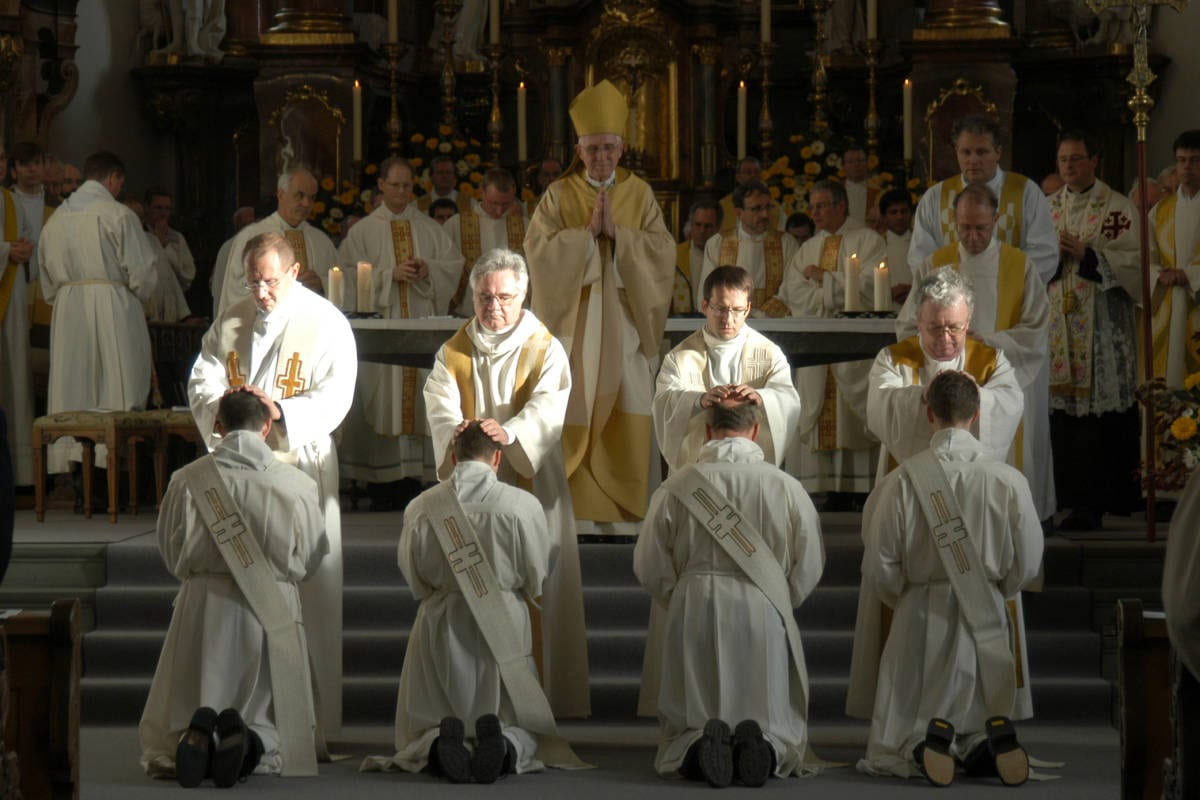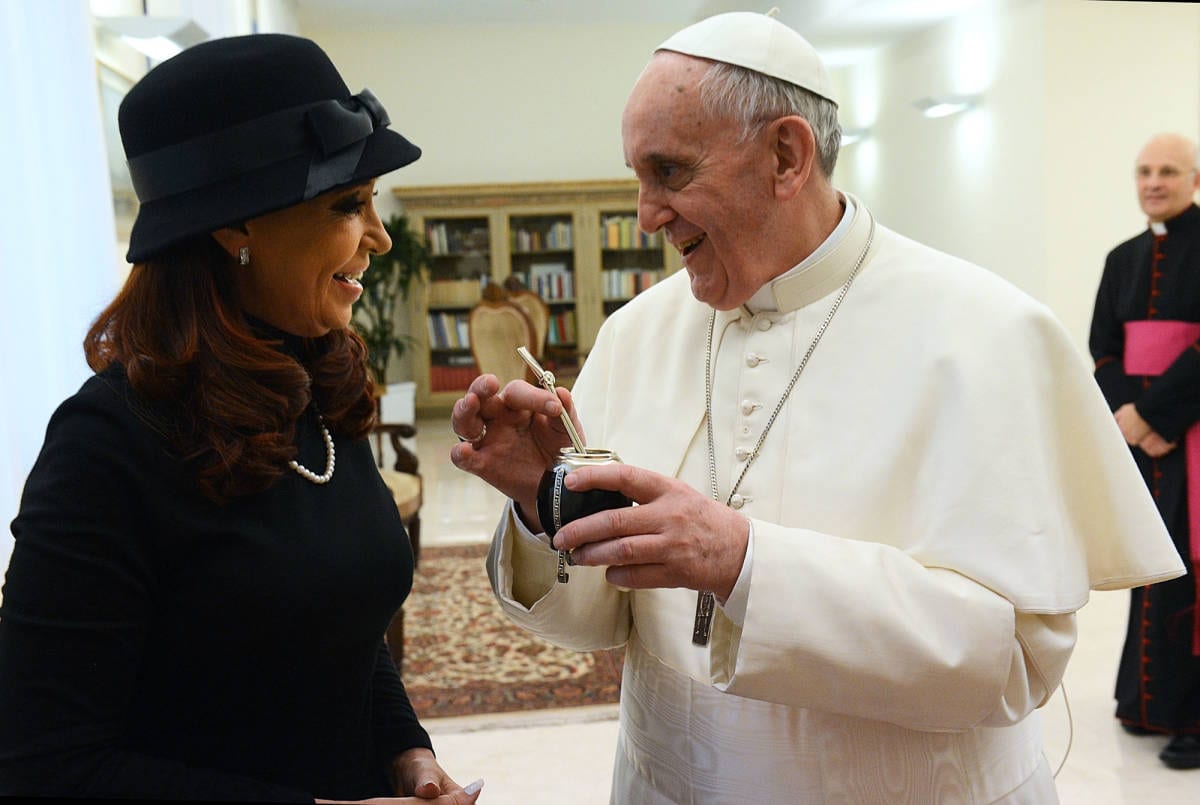
Last week’s news featured three memorable quotes. “You can observe a lot by watching,” said Yogi Berra, professional baseball player, manager, and coach. On conservative groups and lawmakers who made his position as Speaker of the House unsustainable, John Boehner said “… false prophets making unrealistic demands.” And finally, Pope Francis, servant of the servants of God, said “Women priests—that cannot be done.”
Berra was right in this, one of his most often quoted malapropisms. You can observe a lot by watching. By watching the pope as he toured Cuba, Washington, New York City, and Philadelphia, we observed his compassion for the unfortunate, his commitment to religious freedom, and his belief in universal obligation to protect the environment. We also observed that Pope Francis does not believe that there should be women priests.
John Boehner’s referenced bible verses about the dangers of false prophets. Though I am in no one’s mind a Biblical scholar, I counted somewhere between eight and 17 verses in the Old Testament and the New about how people who “are inwardly ravening wolves” are determined to lead the faithful astray.

I am not here to imply that Pope Francis is a false prophet. Not at all. In fact, in all but one area, I am in complete support and agreement with him. I harbor a fondness for this good soul that could border on venerative love. Except that, in his mind, women cannot become priests.
And that position, I would respectfully argue, does lead people astray.
On the plane carrying the pontiff back to Rome, Pope Francis was asked, yet again, about the possibility of women in the priesthood. He explained that Pope John Paul II, who held the position from Oct. 1978 to April 2005, had effectively closed that door. Canon Law 1024 specifically excludes women from the priesthood. Pope Francis further explained he had no authority to change Canon Law. If you understand even a bit about Roman Catholic Church orthodoxy, you can see why the Pope says women can’t be priests.
Canon Law is the body of law set forth by the leadership of the Catholic church to govern the conduct of the Church’s business. It deals with a great deal of mundane business, but interwoven as well is some real meat when it comes to the behavior of the faithful, such as 1024 which is as straightforward as it is misogynistic: “Only a baptized man can validly receive sacred ordination.”
But that isn’t where the spurning of women clerics ends. For that, we must turn to the content of an Apostolic Letter written by Pope John Paul II in 1994. Envisioning, I suppose, the possibility that future popes would be challenged on the same issue, Pope John Paul II devised a deft strategy for effectively “closing the door.” In his letter he declared that “the Catholic Church has no authority to confer the priesthood on women and this judgement is to be definitively held by all the Church faithful.” In other words, no future pope has the power to challenge Canon 1024. Door kick-slammed, locks double-bolted, and keys thrown into the depths of the ocean.

Why did Pope John Paul II take such a definitive and, in my mind, mean-spirited action? It is a question that has been debated and will continue to stir the fires of conflict among those men and women who feel strongly that women clerics have much to bring to the altar. What is clear, however, is that this pope, our pope, as the leader of the flock of the Church faithful, deeply believes he has no authority to mess with Canon Law 1024.
I grew up as a Catholic. I went to Catholic schools and attended Catholic churches as an adult when I attended church. It was when Pope John Paul II came out with his Apostolic Letter in 1994, that I left the Church for good. If I wasn’t good enough for them, they weren’t good enough for me. That seemed simple to me.
It was only within the last few years that I considered returning to some form of organized religion. Raised as I was, the yearning for some sort of spiritual enlightenment deepened as I entered the last third of my life. I just knew it couldn’t be the Catholic Church. Their position hadn’t changed, and neither had my own. As if by happenstance, I became aware of a church in our community led by a female cleric. My beliefs and political positions seemed to be a fit with those of the church organization, and I decided to explore more by attending services there. I clearly remember seeing the clergywoman approach the altar to begin that first service on a steamy Saturday evening in late September. For only a fleeting moment was I aware that she was not a he. As quickly as it had appeared, that perception slipped away, and I fell into the rhythm that exists between a churchgoer in the presence of other churchgoers and their rector.
What I have observed by watching is that women bring a special set of attributes to church ministry, not the least of which is that they can reach out in shared understanding to the majority of their congregations who are women. Of course, women have the intellectual rigor to master the complexities of church doctrine and spiritual teaching, but they also embody the culture of care and compassion so necessary to the successful maneuvering in the challenges of today’s lay world.




Beautifully said.
Well said and well researched. One of the reasons I am no longer Catholic.
Sadly, you do not seem to understand the Catholic faith.
Women cannot be ordained according to the theology of the Church – that which has been consistently taught since the time of the apostles. It is not that someone created a “law” that must be followed, it is that the Canon Law is a reflection of the theology.
Only bread and wine can be used for communion. The fact that the sacrament cannot be done using corn and beer says nothing about the goodness of corn and beer. It is just that, the Church has always believed that bread and wine must be used. In the same way, a male is the only matter that can be used for ordination. Women cannot receive the sacrament of ordination by theology, not canonical law.